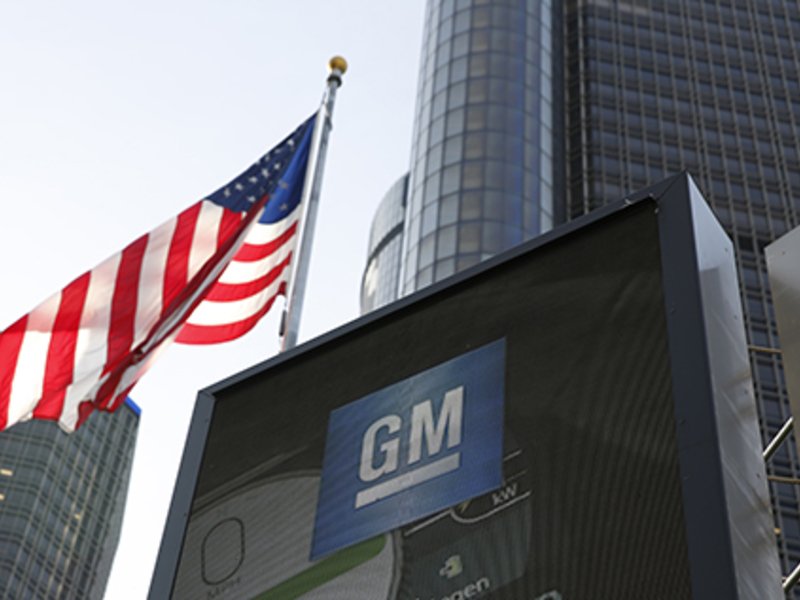
For the first time since 2014, General Motors is publicly disclosing the value of its business tax credits in Michigan a deal that will reduce the financial liability to the state’s taxpayers by $325 million over 10 years.
Under the deal, the automaker will remain eligible for $2.27 billion in Michigan Economic Growth Authority tax credits through the end of 2029, according to the Michigan Economic Development Corp.
GM’s agreement to voluntarily reduce the remaining value of its MEGA credits from $2.6 billion is part of a deal the Michigan Strategic Fund’s board approved Wednesday that will require the company to maintain an in-state workforce of at least 34,750 and invest $3.5 billion in Michigan facilities by 2029. To receive the credits, GM’s 34,750 qualified employees will have to be paid an average weekly wage of $1,300, double the previous minimum weekly wage to qualify for the credits.
“The approved MEGA amendment sets the stage for us to continue our significant commitment and investments in Michigan,” GM spokesman Dan Flores said. “Over the past decade, the Michigan MEGA has helped enable GM to invest more than $10 billion in its Michigan facilities.”
GM sought an amendment to its original 2009 MEGA agreement to give the company more flexibility in the specific facilities where it counts tax credit-subsidized jobs among its statewide workforce of 45,000.
The new agreement removes caps in the number of jobs at GM’s Renaissance Center headquarters in downtown Detroit and Warren Tech Center that can be counted toward the tax credits, which are valued based on the withholdings of each employee’s 4.25 percent state income tax.
GM’s MEGA credits were last valued at $2.1 billion in July 2014. Since then, the value of those tax credits has been shielded from public disclosure by the quasi-governmental MEDC as GM has said the information is proprietary.
“It was important for us to provide that transparency about the remaining credit liability,” said Josh Hundt, senior vice president of business development at the MEDC.
In 2015, GM agreed to cap the value of its MEGA tax credits, which had swelled since 2009 as the automaker agreed to contractual pay raises and profit-sharing checks with the United Auto Workers union and dolled out bonuses to white collar workers.
GM’s $3.5 billion in new investment in Michigan facilities will include its ongoing modernization of the Detroit-Hamtramck Assembly Plant to build electric pickups and vans. The company has already publicly committed to spending $3 billion to retool the Detroit-Hamtramck plant.
If GM spends more than $2 billion at Detroit-Hamtramck, the amended MEGA credit deal says the automaker will invest “no less than $1.5 billion above and beyond the actual investment at the Detroit/Hamtramck facility,” according to a MEDC briefing memo sent to MSF board members.
“While there are countless companies in Michigan that impact the overall automotive ecosystem, General Motors Company plays a critical role not only in direct job creation, but also the growth of the overall automotive supply chain here in the state,” MEDC officials wrote in the memo.
As part of the deal approved Wednesday, GM agreed to forfeit $4.1 million in additional MEGA credits that the Granholm administration awarded a subsidiary, GM Subsystems LLC, for the retention of 290 jobs at its Brownstown Township battery pack assembly plant.
But those employees at the Brownstown Township facility will be eligible to be counted under GM’s 34,750-employee “global retention” MEGA credits, according to the MEDC’s briefing memo.
The amended MEGA agreement says GM’s tax credits will be reduced to 75 percent of the value if the number of eligible employees falls below 34,750 and above 27,875 workers. If GM’s workforce falls between 21,000 and 27,874 the company would get 50 percent of the credit and if its workforce were under 21,000, the automaker would get no MEGA tax credits.
The deal had a retroactive effective date of Jan. 1, 2019, according to the MEDC memo.
“We appreciate our long-standing, productive collaboration with the state of Michigan and look forward to building on this important relationship,” the GM spokesman said in a statement.